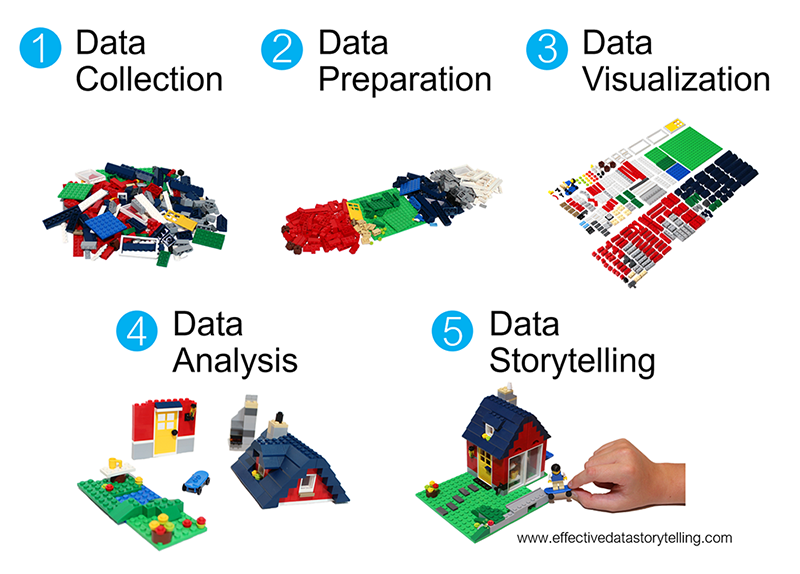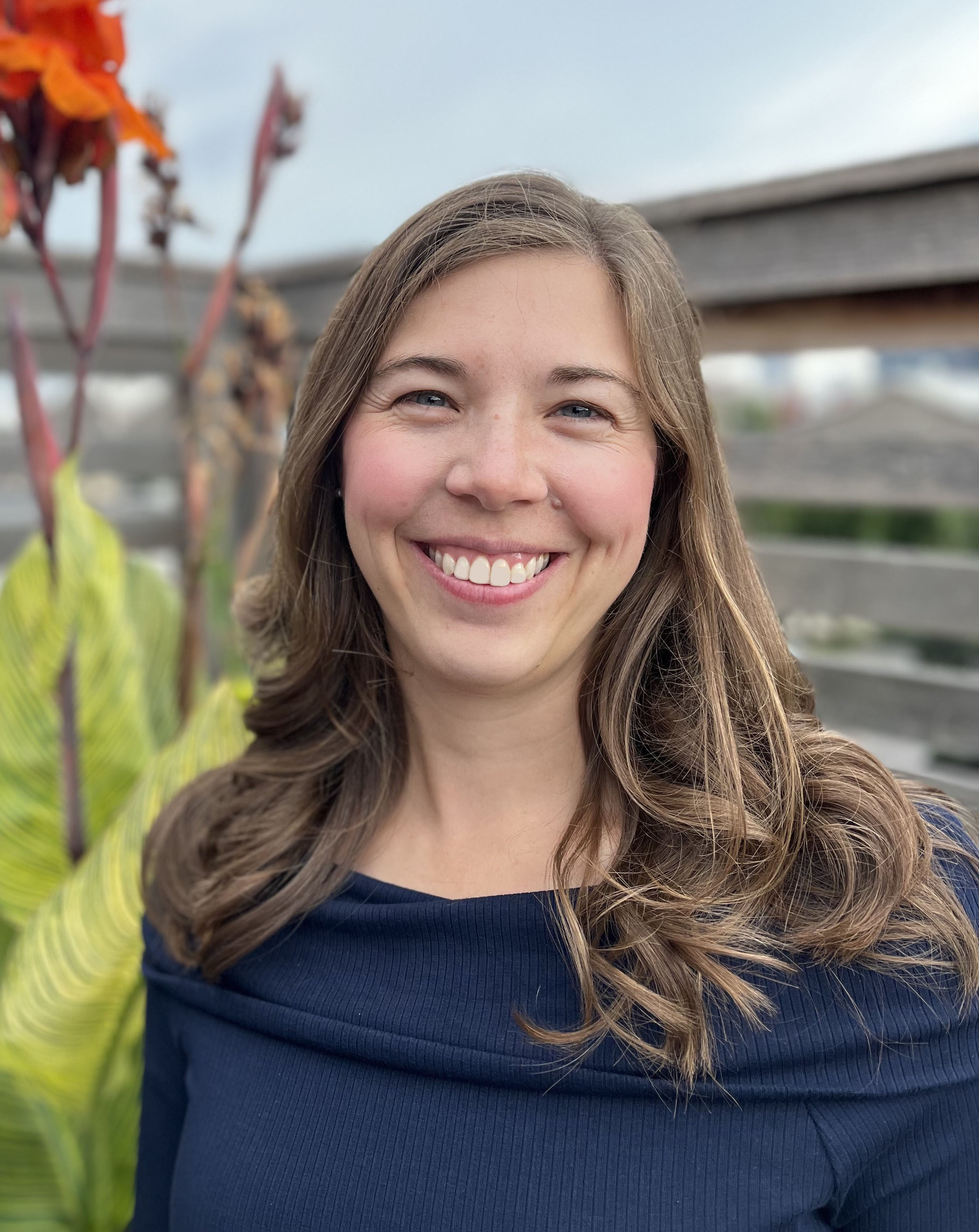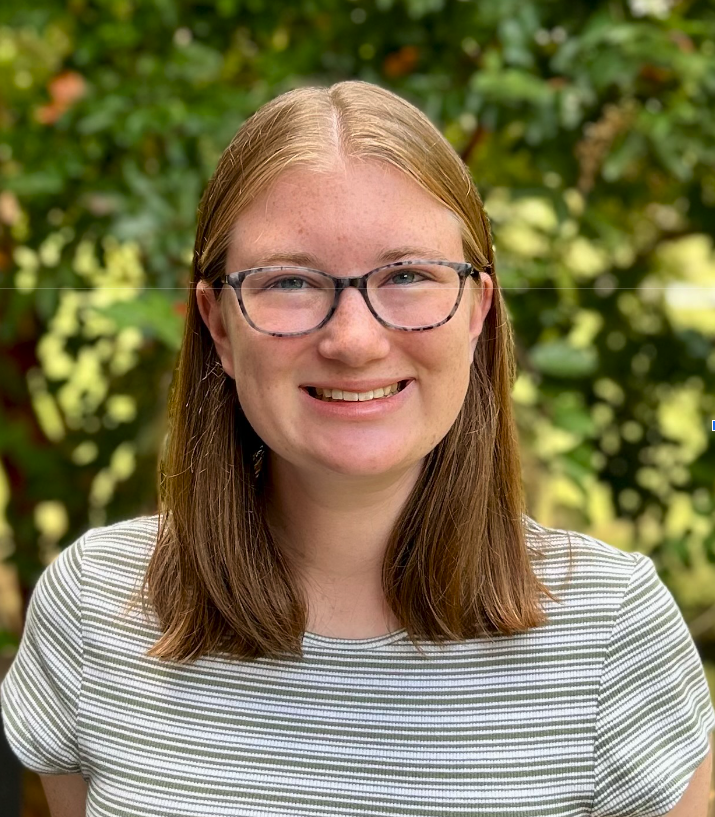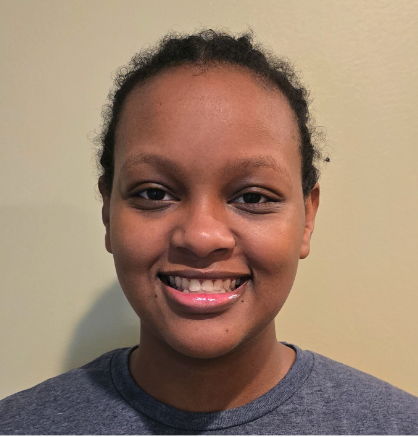Syllabus
Course Overview
Data Science (DS) provides a powerful new approach to understanding complexity in social life, the natural world, the humanities, and beyond. Consistent with the liberal arts mission, DS embraces the need for a continuous interdisciplinary cycle that alternates between question formulation, data exploration, and domain insight. Examples of the myriad disciplines in which these methods find application include computational linguistics, data-driven journalism, data-driven educational policy making, political analytics, and bioinformatics. In COMP/STAT 112, you will develop the computational thinking, data communication skills, and ethical practices needed to turn a pile of data into a set of meaningful insights:

Learning goals
By the end of this course you should be able to:
- Sustain a reflection practice
- Reflect on your learning process so that you are equipped for independent learning
- Reflect on your collaborative work so that you can develop community no matter where you go
- Create effective visualizations
- Create a variety of visualizations in ggplot2
- Wrangle arbitrarily messy data
- Use appropriate R tools to manage and clean data
- Craft high quality data stories
- Iterate on the question-explore-question cycle to craft compelling data stories with attention to data context and ethical considerations
- Use a combination of data acquisition, data wrangling, and visualization to further a data science investigation
- Use AI and search tools to figure out difficult tasks
- Use appropriate coding jargon to construct effective search queries (e.g., Google) and evaluate the accuracy of results that you find
- Construct effective AI prompts (e.g., Chat GPT, Google Bard) and evaluate the accuracy of generated results
- Articulate the ethical and environmental considerations in using AI and search tools
Course communication
Meet the instructional team

Brianna Heggeseth (instructor)
About me: Statistician and data scientist
MSCS Department @ Macalester College
My primary research interests lie broadly in the study of statistical models and machine learning algorithms and their application in practice. I have collaborate with colleagues in social psychology, environmental epidemiology, and genetic biology. See https://bcheggeseth.github.io/ for more information.
Comp/Stat 112 Preceptors

Sam Kenney (he/they)
Comp. Sci. major + English & Russian minor | Class of 2026

Shelly Bai (she/her)
Psych. major + Cog. Sci. + Data Sci. minor | Class of 2025

Maria Sanchez Linares (she/her)
Data Science major + Econ minor | Class of 2025

Elliott Lewis (she/her)
Statistics major (Undeclared) | Class of 2027

Dureti Gamada (she/her)
Comp. Sci. major (Undeclared) | Class of 2027

Jack Nussbaum (he/him)
Data Science major | Class of 2027

Tam Nguyen (he/him)
Statistics + Comp. Sci. major | Class of 2025

Gabriella Nieves (she/her)
Statistics major + Philosophy minor | Class of 2026
The preceptor drop-in hours will be listed on this 112 Preceptor Office Hours Google Calendar.
R/RStudio Preceptor

Kyle Suelflow (he/him)
Data Science major | Class of 2026
The R/RStudio preceptor drop-in hours will be listed on this MSCS Events Google Calendar.
Contacting me
Students often wonder what to call their professors. I prefer to be called by my first name, Brianna (“Bree-AH-na”). If you prefer to be more formal, I’m good with Professor Heggeseth (“HEG-eh-seth”) and I use the gender pronouns she/her/hers.
Please help me make sure that I call you by your preferred name (with correct pronunciation!) and pronouns too!
Please email me (bheggese@macalester.edu) with any personal or academic concerns. I will do my best to respond within 24 hours on weekdays and 48 hours on weekends. For content questions, I encourage you to post in our Slack workspace (see below).
Office Drop-In Hours
Where: OLRI 125 (at the bottom of the interior southern staircase)
When: See my Heggeseth Office Hour Google Calendar for up-to-date office hour times.
Why: Office hours are a great time to talk about this class, career planning, or life in general. This is one of my favorite parts of my job, so please come chat! You should plan to attend my office hours at least once in the semester. If these office hour times don’t work with your schedule, I’m available by appointment; email to set up a time to meet!
Hello, and welcome to a new adventure!
I am excited to start this educational journey with you! You may be feeling quite anxious or really excited or both about this new semester.
I want you to have a positive learning experience in this course so I need you to advocate for yourself and your peers. If something about the course is not working for you, please let me know as soon as possible.
For some of you, this is your first time working with data; some of you have hands-on experience working with data in science, social science, and the arts. Some of you may have taken other STAT or COMP courses already; most of you have no experience with programming languages. You each bring a unique set of strengths and experiences.
I remember feeling intimidated in my first data-focused class. I was a sophomore with no coding experience in a class with senior Math/Statistics majors who had years of programming experience. I felt behind on day one. In office hours, my professor helped me reframe my perspective; the diversity of experience among your peers is an opportunity to learn. Those with less experience bring fresh ideas and creativity to problem solving!
You all belong here in my class and you each have something to learn and something valuable to contribute to this learning community.
Brianna
Slack Discussion Board
Slack is a commonly used communication tool in industry and is useful to be familiar with, so we’ll be using it as our discussion board.
- If you’re new to Slack, this video provides a quick overview.
- First join our STAT/COMP 112: Fall 2024 workspace here.
- After joining, you can access our workspace here. (You might want to bookmark this if you have Slack open in your web broswer.)
Guiding values
Community is key
A sense of community and connectedness can provide a powerful environment for learning: Research shows that learning is maximized when students feel a sense of belonging in the educational environment (e.g., Booker, 2016). A negative climate may create barriers to learning, while a positive climate can energize students’ learning (e.g., Pascarella & Terenzini, cited in How Learning Works, 2012).
For these reasons, I design our in-class group activities to intentionally foster commmunity and connectedness. You can help cultivate our classroom community by being thoughtful about the way you engage with others in class.
Active listening is vital
Research on learning theory and how the brain works has taught us that people learn best in community, when they feel safe, seen, heard, and cared about. Effective listening is a key part of this process. How often do you find yourself coming up with a response and waiting to interject rather than listening to what an other person is saying? On the flip side, what do you need to feel heard and understood? To feel connected in community, we need to practice turn-taking and active listening (fully engaged and trying to understand what someone is saying, rather than just listening to respond). I will ask you to discuss how you want to be listened to throughout the semester.
Reflection is paramount
The content you learn will be cool (unbiased opinion!), but it is a guarantee that as technology evolves, some part of it will become out-of-date during your careers. What you will need to rely on when you leave Macalester is what I want to ensure you cultivate now: learn how to learn. And the cornerstone of a good learning process is reflection.
Reflection is not just fundamental to learning content–it’s fundamental to learning any sort of intellectual, emotional, or physical skill. For this reason, I am prioritizing reflection as a goal for our course in both content learning and collaborative activities.
Mistakes are essential
An expert is a person who has made all the mistakes which can be made in a narrow field.
- Niels Bohr, Nobel Prize-winning physicist
I don’t feel comfortable working with a new R package until I’ve seen the same errors over and over again. Seeing new errors helps me understand the constraints of the code and the assumptions that I was making about my data.
Communication is a superpower
Every time I go to a conference talk on a technical topic, it is striking how quickly laptops or phones come out because of the inability to follow. Academics notoriously struggle to make ideas accessible to others.
I want communication to be very different for you.
Every time you communicate ideas–whether through writing, visuals, or oral presentation–I want you to be a total boss. The end product of strong communication is a better experience for all those who have given you their attention. What’s more, the process of crafting effective communication is invaluable for deepening your own understanding.
How to thrive and what to expect
When taking a new course, figuring out the right workflow/cadence of effort throughout the week can be a big adjustment. And most of you are doing this for 4 different courses! Below are some suggestions for what to expect in the course and how to focus your time and attention during and outside of class.
Before class
Plan Ahead
In a typical week, plan to spend 8-10 hours on COMP/STAT 112 (or any 4-credit course), including class time.
- If you are working far more or far less than 8 hours per week, let me know.
- Carve out dedicated time on your calendar for intentionally studying/reviewing and doing homework
- Stay up-to-date on the course calendar. I suggest incorporating this into your personal Google calendar.
During class
Do the things
Class time will be a mix of interactive lecture and longer stretches of group work. During the lecture portion, I will pause explanation frequently to prompt a short exercise or ask questions that you’ll reflect on individually or together.
- Attend class and actively engage in class
- Work with your classmates; ask each other questions; share your ideas
- Complete the in-class activities (this might mean completing it outside of class, if you didn’t finish)
Review your learning process and group work reflections just before class to frame how you want to engage in class. (Perhaps you’ve noted a struggle and want to try a new strategy.)
After class
Reflect
Make sure to take the time to finish the activity and review the solutions. I will have a checkpoint on Moodle for most days to draw attention to important concepts covered in the previous class.
Review
Most class periods will involve working with a new tool and computational concept. Rewrite / organize your notes. Summarize concepts in your own words.
Be Curious
Don’t be afraid to ask questions. These are opportunities to learn and dig deeper. You get out what you put into a course.
- Open the checkpoint on Moodle as you review the material. Jot down questions or ideas that you have about topics in the material.
- Ask (and answer!) questions in our Slack workspace.
- Record any reflections from in-class time about your learning process or interactions with peers while they are still fresh.
- After learning a new topic in class, it is helpful to immediately attempt the related exercises on the upcoming homework assignment.
- Come to instructor office drop-in hours to chat about the course or anything else! 😃
Grading and feedback
My philosophy
Grading is thorny issue for many educators because of its known negative effects on learning and motivation. Nonetheless, it is ever-present in the US education system and at Macalester. Because I am required to submit grades for this course, it’s worth me taking a minute to share my philosophy about grading with you.
What excites me about being a teacher is your learning. Learning flourishes in an environment where you find meaning and value in what we’re exploring, feel safe engaging with challenging things, receive useful feedback, and regularly reflect on your learning.
It is important to me to create a course structure and grading system that creates an environment for learning to flourish:
Finding meaning and value: I am striving to achieve this by creating space for authentic connection between you, your peers, and myself and by encouraging you to explore a topic that intrigues you for our course project.
Safety in engaging with challenges: The assignments and activities that we will use to learn are meant to be challenging, and it would be unreasonable for me to expect that you perform perfectly on the first try. For this reason, the in-class activities are not graded and solutions are provided. Additionally, I give qualitative feedback on homework and a summary of whether the work is passing. This is to help you focus your energies on reviewing particular topics. If ever you are feeling overwhelmed by this course, please reach out to me. We’ll work together to talk about study strategies.
Receiving useful feedback and reflecting regularly: In order to learn maximally, you need BOTH good feedback and to reflect thoughtfully about misconceptions in your learning. Our preceptors and I will strive to give useful comments and prompts to spur reflection when we see room for improvement.
Assignments and assessments
Checkpoints
Reflecting on concepts in between class periods is important to: (1) assessing and deepening your understanding of the current material; (2) preparing to build on this material; and (3) maintaining a common foundation across all students. To this end, there will be roughly 14 low-stakes checkpoint quizzes (CPs). Details:
- You will make mistakes and that’s ok!
- You can reattempt most CP questions with a 33% penalty for each incorrect response.
- CPs will be graded pass / fail. To pass, you must earn at least 80% of the points.
- The overall goal is to pass at least 10 of the 14 checkpoints. Thus you might miss or not pass 3 CPs without it impacting your grade.
- Be mindful of the deadlines.
- CPs are due on the given due date, 10 minutes before class.
- There are no extensions for CPs. They’re important in-the-moment reflection on the previous class session and preparation for the next class session, hence time sensitive.
Homework
8 homework assignments (HW) will provide the opportunity to practice and explore the course material in more depth. The following flexibility is built in to help reduce stress and to facilitate deeper learning.
3-Day Extensions
Each student can have a 3-day extension on up to 3 HW assignments. The 3-day extension includes weekends. This policy is in place to provide some flexibility while ensuring that you stay on track to succeed in this course.
- Send the instructor an email if you intend to use an extension (no reason needed).
- Extensions will be tracked in your feedback sheet.
- If you use an extension, you should expect a delay in your feedback.
- In general, HW that exceeds the extension opportunities will not be graded or accepted for credit. However, there might be additional flexibility in rare extenuating circumstances:
- Additional flexibility needs to be discussed in an in-person conversation with me in advance to ensure the student’s success in the course. Depending on the extenuating circumstance, additional flexibility will typically reduce the course grade.
Pass / fail grading
You will make mistakes and that’s ok! Instead of every mistake chipping away at your grade, each HW will have qualitative feedback plus an overall summary:
- High pass (all exercises are correct or almost correct)
- Pass (all exercises are correct or almost correct with at at most 1-2 not quite there)
- Low pass (more than half of the exercises as correct or almost correct)
- Not pass or did not submit HW
Quizzes
To ensure that you are developing the essential conceptual understanding of the data science topics, we will have two quizzes throughout the semester.
These quizzes will be in-person during class time on October 1 and October 29, 2024.
Revising and resubmitting quizzes: Everyone will revise with the ability to work with your classmates and resubmit your work:
- For every question marked incorrect, write an updated answer. You can work with your classmates to discuss the questions and answers.
- For every question marked incorrect, write a sentence that explains your original thinking and why your new answer is correct.
- Submit your revised work.
Reflections
Roughly every month in the semester, you will write a reflection in which you think about your goals, progress, and next steps.
Reflections that show thoughtfulness with incorporation of concrete observations will receive a grade of Pass.
Data Storytelling Project
The best way to learn data science and feel like a data scientist is to work on meaningful data-driven projects. The course project will be a 6-week, collaborative experience in which you investigate a series of meaningful questions using potentially multiple datasets.
The purpose of the project is to engage in a meaningful and collaborative data-driven experience and to build something that you would be proud to showcase to a potential employer.
More details will be provided later in the semester. Here are some basics:
Roughly 25% of our class sessions will be devoted to the project, and data storytelling in general.
The projects are collaborative, but I will provide structure for individual contributions. Though you will work in assigned groups at various points throughout the semester, you will pick your own group for the final project. This is something to think about as you meet other students in class and learn about common interests.
Project presentations are during finals week, on Wednesday, December 18, 2024 from 10:30am – 12:30pm. In-person attendance is mandatory, so plan accordingly.
Course grading system
Requirements for Passing
In order to pass the course, you will need to work towards the learning goals of the course by doing the following:
- Community: Be present and engaged in class for at least 75% of the class periods.
- Reflection: Demonstrate effort on all 3 monthly reflections.
- Checkpoints: Attempt at least 10 of the checkpoints and pass 7 of them, which is about half of the total.
- Homework: Earn a low pass or higher on at least 7 homeworks.
- Quizzes: Attempt all quizzes and receive at least a low pass prior to revision for all quizzes.
- Project: Pass all project milestones. Contribute to a passing project narrative and presentation.
Requirements for a B
In order to earn a final letter grade of B (B-, B, or B+), you will need to meet the requirements for a Passing grade and demonstrate meeting most of the learning goals by doing the following:
- Reflection: Pass all 3 monthly reflections.
- Checkpoints: Pass at least 10 of the checkpoints.
- Homework: Submit at least 7 homeworks and earn a pass or higher on at least 5 homeworks.
- Quizzes: Pass at least 1 quiz prior to revision. Pass after revision.
- Project: Pass all project milestones. Clearly contribute to a passing project narrative and presentation.
Requirements for an A
In order to earn a final letter grade of A (A- or A), you will need to meet the requirements for a B and and demonstrate meeting all of the learning goals by doing the following:
- Community: Be present and engaged in class for at least 90% of the class periods.
- Checkpoints: Aim to pass all of the checkpoints.
- Homework: Earn a pass on all 7 homeworks with most homeworks having a high pass.
- Quizzes: High pass at least 1 quiz prior to revision. High pass after revision.
- Project: Thoughtfully integrate peer and instructor feedback to create a project narrative and presentation Passing requirements and meet the Excellent requirements in at least 2 areas.
Textbooks
We will primarily use the following textbooks (freely available online):
- R for Data Science (2e) by Wickham, Cetinkaya-Rundel, and Grolemund (Abbreviated as R4DS)
The following textbooks are also good resources (also freely available online):
- Modern Data Science with R (3e) by Baumer, Kaplan, and Horton (Abbreviated as MDSR)
- Introduction to Data Science: Data Wrangling and Visualization with R and Advanced Data Science: Statistics and Prediction Algorithms Through Case Studies by Irizarry
- Tidyverse Skills for Data Science by Wright, Ellis, Hicks, and Peng
Other policies
Absences and Late work
Though consistent attendance is expected, it’s ok to miss the occasional class. So that we can share clear and consistent information about attendance, absences will be transparently tracked.
Except in rare extenuating circumstances:
- 3 or fewer absences will not impact your grade
- 4-6 absences will impact your grade
- you cannot pass the course if you accrue 7+ absences (more than 25% of class sessions)
Any exceptions must be discussed with me early on (not after the fact).
- Check the daily schedule for what is happening in class that day.
- Complete the in-class activity on your own. Check the solutions in the online manual, at the bottom of the activity.
- Ask any follow-up questions on Slack or in OH.
- Send me a quick email. You do not need to share a detailed reason for your absence. It’s just a simple courtesy & keeps communication lines open.
Homework assignments will generally be due approximately weekly on Tuesday or Thursday at 11:59pm.
The purpose of deadlines are so that the instructional team can give useful, meaningful feedback in a timely manner. Everyone automatically has three 3-day extensions to use throughout the semester. If you anticipate needing more time to complete an assignment and want to use one of those extensions, please email me ahead of time so that I can coordinate with the preceptors.
If you have used all of your extensions and need more time, please email me to set up a meeting as soon as possible to discuss your situation and to come up with a plan for you to thrive in the course.
Academic integrity
Academic integrity is the cornerstone of our learning community. Students are expected to be familiar with the college’s standards on academic integrity.
I encourage you to work with your classmates to discuss material and ideas for assignments, but in order for you to receive individualized feedback on your own learning, you must submit your own work. This involves writing your own code and putting thoughts and explanations into your own words. Always cite any sources you use, including AI (see section below).
Artificial intelligence (AI) use
Learning to use AI tools is an emerging skill that we will explore together in this course. I expect you to use AI (ChatGPT, Google Bard)—in fact, some assignments may require it.
Please be aware of the limits of AI:
- AI does not always generate accurate output. If it gives you a number, fact, or code, assume it is wrong unless you either know the answer or can check in with another source. AI works best for topics you already understand to a sufficient extent.
- If you provide minimum effort prompts, you will get low quality results. You will need to refine your prompts in order to get good outcomes. This will take work.
- Be thoughtful about when this tool is useful. Don’t use it if it isn’t appropriate for the case or circumstance.
- AI is a imperfect tool, but one that you need to acknowledge using. Any ideas, language, or code that is produced by AI must be cited, just like any other resource.
- How to cite AI: Please include a paragraph at the end of any assignment that uses AI explaining what you used the AI for and what prompts you used to get the results. Failure to do so is in violation of the academic integrity policy at Macalester College.
If you have any questions about your use of AI tools, please contact me to discuss them.
The environment you deserve
Macalester College values diversity and inclusion. We are committed to a climate of mutual respect, free of discrimination based on race, ethnicity, gender identity, religion, sexual orientation, disability, and other identities, in and out of the classroom. This class strives to be a learning environment that is usable, equitable, inclusive, and welcoming.
To help support these goals, we expect you to follow the MSCS Community Guidelines. These guidelines were created by the MSCS faculty and staff in our ongoing efforts to create a community that is more welcoming, supportive, and inclusive.
Respect: Everyone comes from a different path through life, and it is our moral duty as human beings to listen to each other without judgment and to respect one another. I have no tolerance for discrimination of any kind, in and out of the classroom. If you are seeking campus resources regarding on-going microagressions, the Department of Multicultural Life and the Center for Religious and Spiritual Life are wonderful resources.
Empathy: Everyone has a different life situation. This will impact our personal choices and it can cause tension. Please start with empathy for each other. We all have ongoing struggles and worries and we are all trying to do our best given the circumstances.
Be Curious: We are dealing with higher than normal levels of anxiety and all of us have different ways of coping with that stress. As we navigate interpersonal relationships, start with curiosity. Rather than assuming, ask each other questions. Inspired by Ted Lasso.
Sensitive Topics: Data science applications span issues in science, policy, and society. As such, we may sometimes address topics that are sensitive for you. I will try to announce in class if an assignment or activity involves a potentially sensitive topic. If you have reservations about a particular topic, please come talk to me to discuss possible options.
Accommodations: If you need accommodations for any reason, please contact Center for Disability Resources to discuss your needs, and speak with me as soon as possible afterwards so that we can discuss your accommodation plan. If you already have official accommodations, please discuss these with me within the first week of class so that you get off to a great start. Contact me if you have other special circumstances.
Title IX: You deserve a community free from discrimination, sexual harassment, hostility, sexual assault, domestic violence, dating violence, and stalking. If you or anyone you know has experienced harassment or discrimination, know that you are not alone. Macalester provides staff and resources to help you find support. More information is available on the Title IX website.
Please be aware that all Macalester faculty (and preceptors when working) are mandatory reporters, which means that if we become aware of incidents or allegations of sexual misconduct, we are required to share the matter with the Title IX Coordinator. Although I have to make that notification, you control how your case is handled, including whether or not you wish to pursue a formal complaint. If you would like to speak to someone confidentially, contact the Hamre Center (651-696-6275), Chaplain staff (651-696-6298), or other local and national resources listed here.
General Health and Well-being: I encourage to make your well-being a priority throughout this semester (and beyond!). Investing time into taking care of yourself will help you engage more fully in your academic experience. Remember that beyond being a student, you are a human being carrying your own experiences, thoughts, emotions, and identities with you. It is important to acknowledge any stress you may be facing, which can be mental, emotional, physical, cultural, financial, etc., and how they can have an impact on you and your academic experience. Remember that you have a body with needs. During class time, eat when you are hungry, drink water, use the restroom, and step away/out if you need space or a break. Please do what is necessary while minimizing the impact on others’ ability to be mentally and emotionally present. Outside of the classroom, sleeping, moving your body, and connecting with others can be strategies to help you be resilient at Macalester (and beyond).
If you are having difficulties maintaining your well-being, you are not alone. Please don’t hesitate to contact me and/or find support from physical and mental health resources here and here.